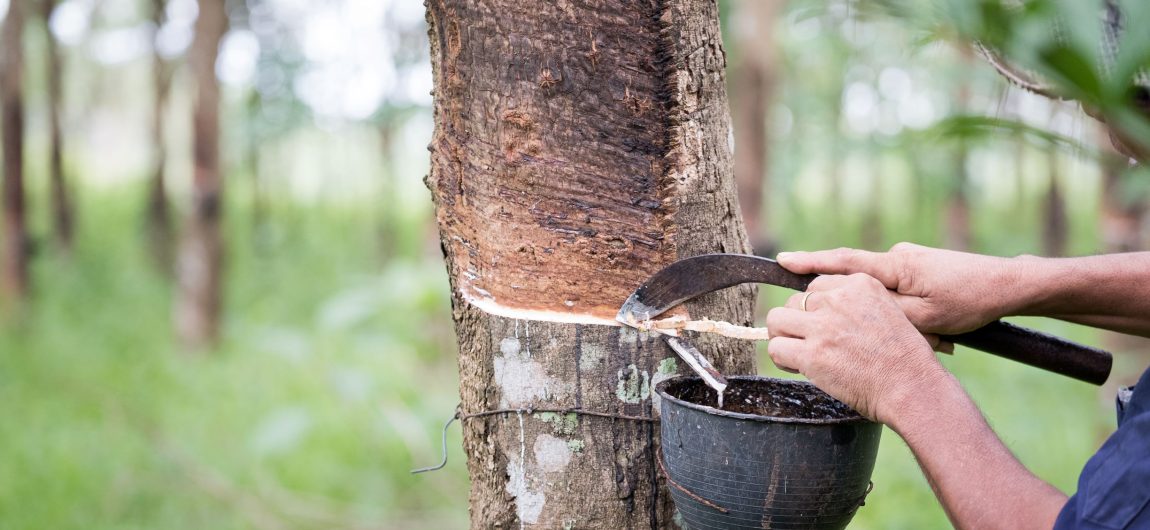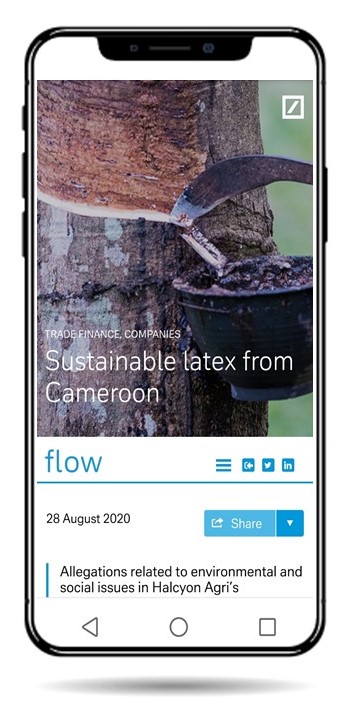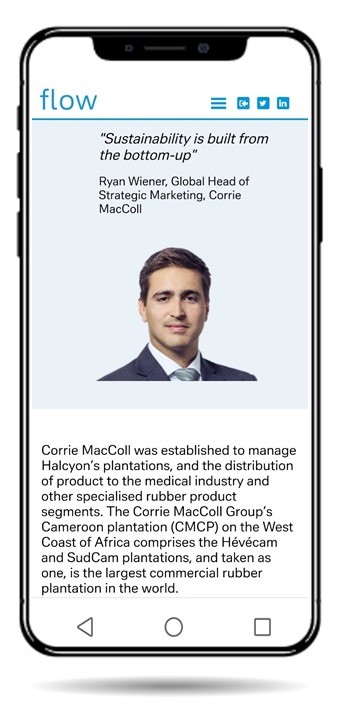Deutsche Bank flow: Sustainable Latex in Cameroon

Deutsche Bank flow recently reported on how sustainable financing is helping Corrie MacColl Plantations (CMCP) set higher standards for the natural rubber industry.
Natural rubber is a critical raw material that the world’s mobility relies on; without rubber the world comes to a stop. Despite the value of the industry, its supply chain is often tainted by unsustainable cultivation practices. Following allegations regarding environmental and social issues relating to our own Cameroon plantations, we embarked on an intense sustainability programme to address these issues and to further transform the natural rubber supply chain.
In the spirit of transparency, we published the grievances on our website, along with responses to each claim, many of which relate to legacy issues that were inherited by Halcyon when it acquired the businesses in Cameroon. The studies and subsequent management plans run by the previous management were outdated and not up to international standards, resulting in adverse effects on critical forest ecosystems and the displacement of local and indigenous communities.
Our ongoing sustainability agenda has come to fruition through partnerships with international and local NGOs such as Mighty Earth, Rainforest Alliance, APED, APIFED and Proforest. Actions include a ‘No Deforestation’ commitment, an industry-first Sustainable Natural Rubber Supply Chain Policy, a comprehensive ESIA gap analysis and environmental management plan (EMP) and months of face-to-face community consultations leading into a Social Action Plan. Recognising the need for transparency and third-party oversight, the teams established the independent Cameroon Sustainability Council to govern proposals including the Cameroon Outgrower Programme and the protection of 25,000 ha of forest.
- 'We launched an in-depth investigation into the legacy issues as CMCP looked to re-build from the bottom, up. We aligned ourselves with local and international experts from Civil Society, working hard to earn trust and communicate our desire for real change, rather than be just another greenwashing organisation,' says Ryan Wiener, Global Head, Strategic Marketing at Corrie MacColl.
Deutsche Bank’s recently announced US $25m sustainability-linked loan facility to finance Corrie MacColl’s plantation investments, with an accordion feature to upsize the facility to US$75m, is key to advancing our sustainability agenda. ‘There is still plenty to do − we are only at the beginning of a long road to a truly sustainable rubber. This is why our partnership with DB and the opportunity of this loan is so important,’ says Wiener. The next step includes supporting smallholders in the international market and ensuring that the entire industry unites over mandatory standards.


